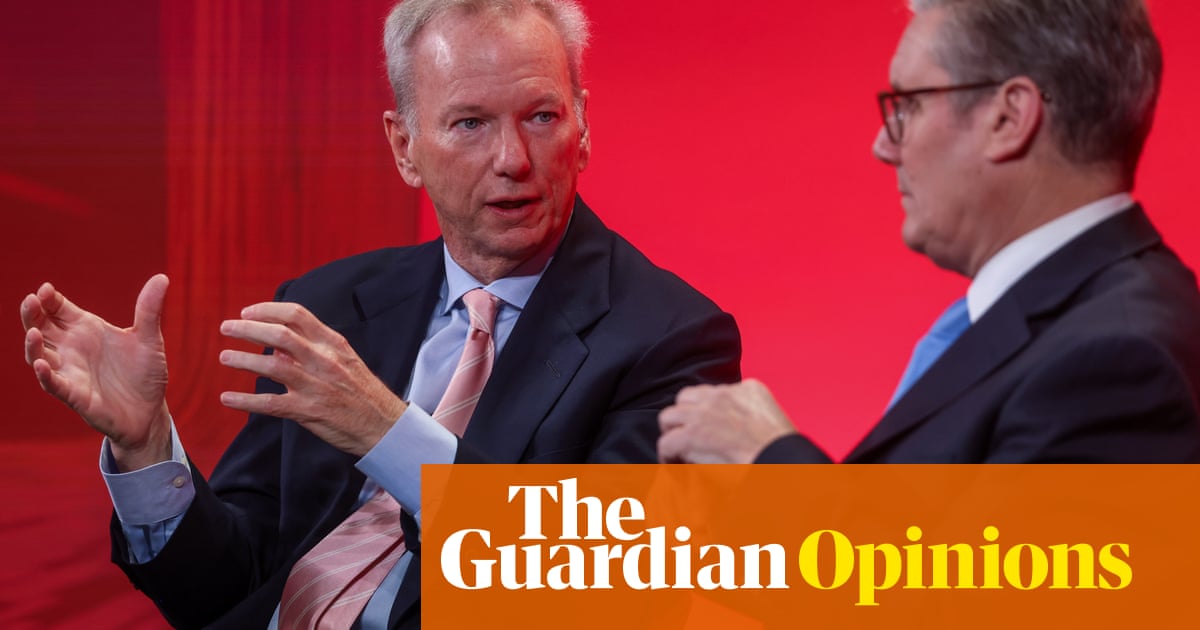Governments chase private investment. Few ask who really benefits. Recently, Labour has been genuflecting to the tech industry in the hope that Britain will become the destination for an AI boom. American tech firms have enjoyed numerous meetings with the secretary of state,Peter Kyle, and ministers have taken aim at competitionregulation, a vital tool for tackling corporate power. In doing so, Labour risks undermining its attempts to build a more productive, higher-wage economy.
Just as the EU is adopting a tougher stance on big tech andAI, Labour is moving in a moreconciliatorydirection. Last week, ministers handed the Competition and Markets Authority (CMA), the regulator with the power to break up big tech firms, a new“steer”to prioritise growth. At Labour’s investment summit last October, Sir Keir Starmer had a friendlyconversationwith the former Google boss Eric Schmidt, and pledged to make the CMA take growth“as seriously as this room does”. The government then installedDoug Gurr, the former head of Amazon UK, as the regulator’s new chair.
A recentpaperby the Institute for Public Policy Research suggests that wooing tech giants by relaxing competition regulation would result in short-lived and uneven growth. A better approach would be tackling the power of dominant firms, which would produce a healthier, more dynamic economy, allowing medium‑sized businesses that pay tax in Britain to flourish. This would also improve people’s experience of the “everyday economy”, a realm thatonce interestedRachel Reeves. As dominant firms become more powerful, they squeeze out competitors and charge higher prices. The economists Jan Eeckhout and Jan de Loecker found that between 1980 and 2021, average global“markups”(the difference between what a product sells for, and how much it costs to produce) rose threefold.
This is eroding living standards. People have experienced these markups at vet surgeries, where smaller companies have merged and costs have soared bymore than 60%over the last decade, and in funeral businesses, another sector that is increasinglyconsolidated. A 2020 CMAstudyfound people resorting to payday loans and food banks to cover the cost of burying a loved one. Powerful firms find it easier to profit in moments of upheaval: after Russia invaded Ukraine, energy and food companies hiked their prices and others followed suit, creating aninflationary spike. The climate crisis and trade wars will provide even more opportunities for powerful firms to defend their profit margins at a cost to everyone else.
The CMA has form in targeting corporate power. It ordered Meta to sell thewebsite app Giphyand it initially blocked Microsoft’s merger with the games developer Activision, a decision Microsoft’s president hyperbolically described as“the darkest day in our four decades in Britain”. Perhaps that is why Labour seems intent on softening the regulator’s approach.
This will do little to lift Britain out of its low-wage, low-productivity slump. Firms with huge market power don’t need to innovate or invest to boost productivity, since they can rely on charging as much as possible to customers, and paying as little as possible to workers. As John Kingman, formerly of the Treasury,recently put it, governments should avoid “pandering too much to … incumbents, when in a low-productivity economy the incumbents tend if anything to be a big part of the problem”. Labour should heed that advice.
